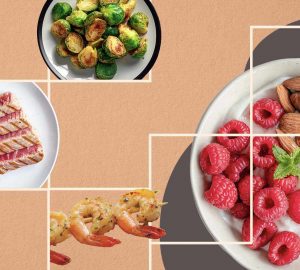The recovery period following a surgery can prove to be more challenging than the the procedure itself. So, will making changes to your diet have an effect on the time it takes to recover post-surgery? Find out here…
No matter what surgery someone undergoes – be it a minor operation to correct a broken finger, or a major procedure to mend an internal organ – it will always take some time for you get back on your feet to resume your life as normal. But, can your diet have an effect on the time it takes to recover post-surgery?
We all know that eating the right foods helps to keep our bodies to stay fit and healthy. The question is, do our dietary choices help to heal our body quicker while it’s under stress?
That’s what we’ll be answering in this post! So, if you’ve recently undergone surgery, which was possibly made more complicated due to negligence at A&E, read on to find out how your diet may improve your recovery time.
Why Do Your Dietary Choices Matter Post-Surgery?
Every type of surgery is carried out with the goal of improving your general health and quality of life. But, as a part of the deal, surgery can inflict significant trauma on the body, which means it will immediately be tasked with repairing itself.
When we suffer trauma, we are all at an increased risk of suffering from complications, such as infections, decreased mobility, and significant weight loss or gain. Reducing the potential of these issues affecting your general health is, clearly, extremely important.
As you might expect, the foods we eat have a profound effect on the how efficiently the body is able to heal itself. Certain foods may contain plenty of protein – good for repairing muscle and tissue – while others may important vitamins that battle against post-surgery fatigue.
Balancing your diet with plenty of different foods (and drinks), means that your body is receiving all the nutrients it needs to restore itself. That can only be good news for you!
5 Foods and Diets that Will Speed Up Your Recovery Time Post-Surgery
Fortunately, the dietary choices you need to make following a surgery aren’t completely unattainable. There aren’t any magical fruits from the mountains of Tibet that you need to forage for, nor are there any spiritual spices that will miraculously cure you of your ailment.
These eight diets all contain foods and ingredients that are easily found at your local supermarket – so let’s take a closer look…
- High Fibre Diets
One of the most common complications that can end up slowing down your recovery following surgery is not all the pleasant – constipation.
To help you cope with the pain or discomfort you’ll likely be feeling after your surgery, you’ll more than likely be subscribed with heavy-duty painkillers. These painkillers can often prevent you from using the toilet as often as you’d like, which can cause potential health issues.
In the most serious cases, this can send you back to hospital and will ultimately get in the way of your recovery. Not ideal.
This can be counteracted by eating plenty of foods that are high in fibre. High-fibre foods, such as wholegrain cereals and fresh fruit, can help to loosen your bowels and set you on the right path.
- Lean Protein
Eating plenty of protein is an absolute must following surgery, but it’s equally important that you eat the right sort of protein. While you may think that eating a juicy steak is the way to go if you want your body to start healing itself quickly, it’s actually more important to focus on eating lean proteins, such as white meat and fish.
Red meat does have the same muscle healing properties as other types of protein, but it also has higher levels of saturated fat, which can increase the chance of constipation.
Lean proteins avoid this from becoming an issue, which means you should always seek them out when you’re prepping your meals. And, if you’re a vegetarian or vegan, there are plenty of other alternatives on offer, such as nuts, tofu and pulses.
- Healthy Fats
Sure, saturated fats aren’t great, but there’s nothing wrong with a bit of healthy fat in your diet. In fact, it’s exactly what you’re going to need following surgery.
Foods with healthy fats, like fish, nuts and oils, contain plenty of nutrients and vitamins that will help to strengthen your immune system. This is sure to decrease the chances of contracting an infection following surgery.
- Foods with Antioxidants
Antioxidants help to defend your body’s cells from damage, as well as aiding cell reparation following instances of trauma. So, a diet rich in antioxidants is only going to be beneficial when you’re looking to improve your recovery time post-surgery.
Foods that are rich in antioxidants include berries, kale, and spinach – all of which can be handily blended into a delicious smoothie. Though, perhaps not at the same time…
- Probiotics
Your body needs healthy bacteria to help stave off the germs and infections you’re more susceptible to following surgery. During your procedure, and the following weeks, your body’s system will be disrupted by anaesthetics, antibiotics and painkillers, which means achieving some much-needed balance is essential.
The best way of making sure that you are getting enough probiotics in your diet is to drink yogurts that are advertised as being rich in them. They are usually small, so you can easily have one alongside your usual lunch.
Are You Looking for Ways to Speed Up Your Recovery Post-Surgery?
As you can see, carefully managing your diet can indeed speed up your recovery time following surgery. The key is to carefully balance what you’re eating, making sure that you expose yourself to as many foods with healing properties as possible. Variety is the spice of life, after all!
Have you got any more diet tips for anyone else recovering from surgery? Feel free to leave a comment below so we can keep the discussion going!
Please be advised that this article is for general informational purposes only, and should not be used as a substitute for advice from a trained medical or fitness professional. Be sure to consult a medical professional or healthcare provider if you’re seeking medical or mental health advice, diagnoses, or treatment. We are not liable for risks or issues associated with using or acting upon the information on this site.








